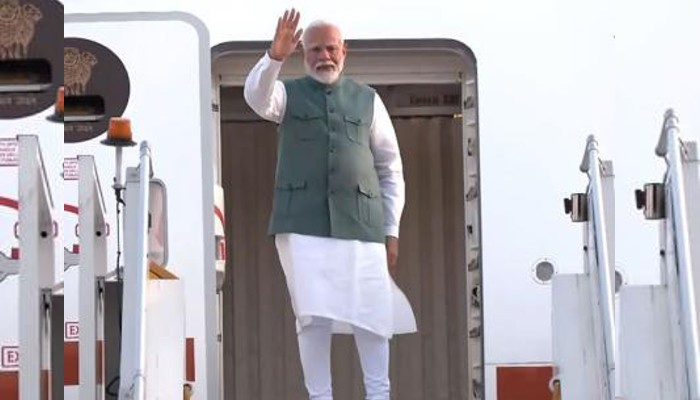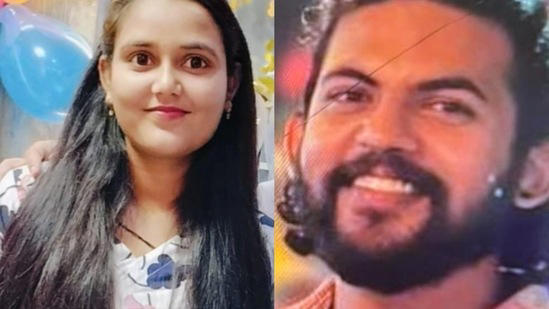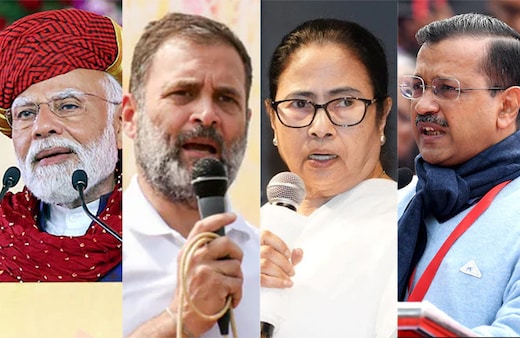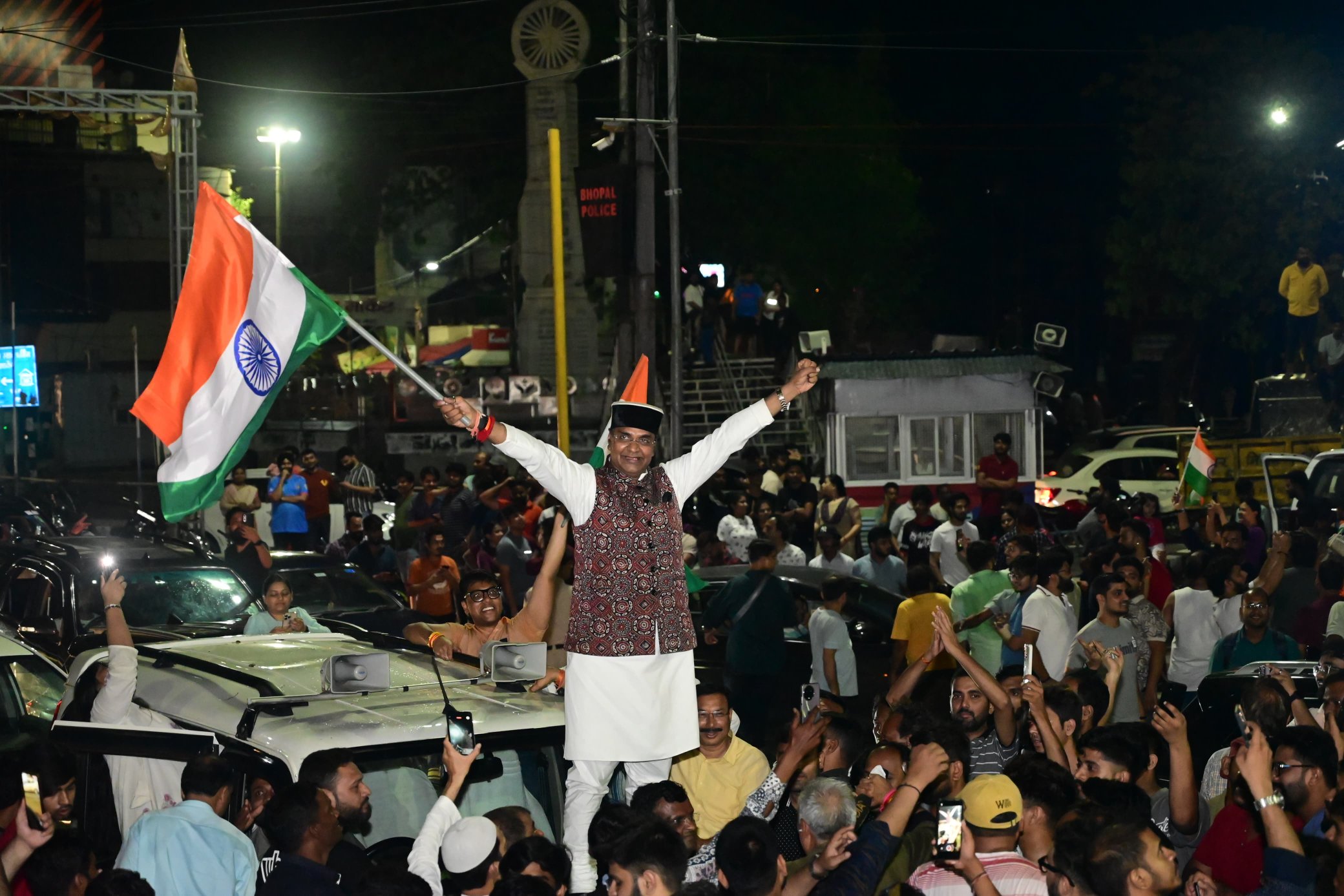PM Modi’s diplomatic visits to Russia and Austria focused on enhancing bilateral relations, addressing global issues, and promoting peace. Key discussions included economic cooperation, climate change initiatives, and cultural exchanges, underscoring India’s commitment to global partnerships.
Prime Minister Narendra Modi returned to India on Thursday, July 11, after completing significant diplomatic visits to Russia and Austria. These diplomatic visits were crucial in enhancing bilateral relations and addressing major international issues with leaders from both countries. Modi’s diplomatic visits underscored India’s ongoing efforts to strengthen global partnerships and foster international cooperation.
ALSO READ | PM Modi’s First Russia Visit Post Ukraine War: Agenda and Strategic Talks
High-Level Talks in Russia
Engagements with President Putin
During his diplomatic visit to Russia, PM Modi engaged in high-level talks and strategic discussions with President Vladimir Putin. The discussions primarily focused on enhancing bilateral relations and addressing pressing global issues. One of the critical topics was the ongoing conflict in Ukraine.
PM Modi made a strong anti-war statement during Modi’s diplomatic visit, emphasizing that war is not a solution. He expressed deep sorrow over the loss of innocent lives, particularly highlighting the tragic deaths of children in the conflict. “Whether it be war, conflicts, or terror attacks, everyone who believes in humanity is pained when there is a loss of lives. But when innocent children are murdered, it is heart-wrenching and that pain is immense. I also had a discussion about this with you,” Modi conveyed to President Putin. This message highlighted India’s stance on promoting peace and stability in the international arena.

Economic and Strategic Cooperation
Beyond the discussions on the Ukraine conflict, Modi’s diplomatic visit also focused on strengthening economic and strategic cooperation between India and Russia. Both leaders discussed various aspects of their bilateral relationship, including trade, energy, defense, and technology. The goal was to explore new avenues for collaboration that would benefit both nations and contribute to global economic stability.
Cultural and Educational Exchange
PM Modi’s diplomatic visit to Russia also included discussions on cultural and educational exchanges. Both countries emphasized the importance of people-to-people connections and the role of cultural diplomacy in strengthening bilateral ties. Initiatives to promote student exchanges, joint research projects, and cultural programs were discussed, aiming to foster a deeper understanding and appreciation of each other’s heritage and traditions.
Strengthening Ties with Austria
Meeting with Chancellor Karl Nehammer
Following his diplomatic visit to Russia, PM Modi traveled to Austria, where he held talks with Chancellor Karl Nehammer on July 10. During a press conference, PM Modi reiterated his anti-war stance, emphasizing, “this is not the time for war.” This statement followed his strong anti-war message delivered to Russian President Vladimir Putin in Moscow, reinforcing India’s consistent call for peace and stability. Modi’s diplomatic visit to Austria was marked by a clear message of peace.

Bilateral Discussions and Agreements
Modi’s diplomatic visit to Austria was marked by extensive bilateral discussions covering various areas of mutual interest. Key topics included trade and investment, renewable energy, technology, and innovation. Both leaders explored ways to enhance economic cooperation and create new opportunities for businesses and investors from both countries.
Collaborative Efforts on Climate Change
One of the significant aspects of Modi’s diplomatic visit to Austria was the focus on collaborative efforts to combat climate change. Both leaders acknowledged the urgency of addressing environmental challenges and committed to working together on sustainable solutions. Discussions included joint initiatives on clean energy, green technologies, and sustainable development practices. This cooperation aligns with India’s broader commitment to global environmental sustainability and its efforts to achieve its climate goals.
Cultural Diplomacy and People-to-People Ties
Modi’s diplomatic visit to Austria also highlighted the importance of cultural diplomacy and people-to-people ties. PM Modi and Chancellor Nehammer discussed initiatives to promote cultural exchanges, tourism, and educational partnerships. These efforts aim to strengthen the bonds between the people of India and Austria, fostering a deeper understanding and appreciation of each other’s cultures.
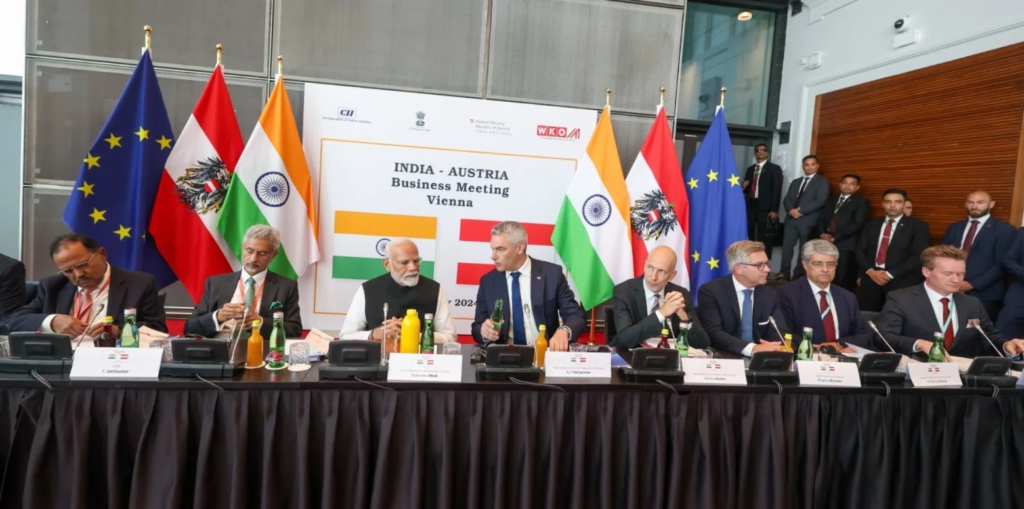
A Step Towards Global Cooperation
Modi’s diplomatic visits to Russia and Austria were pivotal in advancing India’s foreign policy objectives and strengthening its global partnerships. The high-level talks and strategic discussions during these diplomatic visits underscored India’s commitment to promoting peace, stability, and cooperation on the international stage.
The emphasis on economic cooperation, cultural exchanges, and collaborative efforts on global challenges such as climate change demonstrated a comprehensive approach to diplomacy. Modi’s diplomatic visits are part of India’s ongoing efforts to play a proactive role in shaping a more inclusive and sustainable global order.
As PM Modi returns to India, the outcomes of these diplomatic visits are expected to pave the way for enhanced bilateral relations and greater cooperation with Russia and Austria. These efforts will contribute to India’s broader goals of fostering global partnerships, addressing international issues, and promoting peace and prosperity worldwide.
(With inputs from agencies)
ALSO READ | Modi-Putin Meeting Sparks Concerns: US Reacts Vigorously to India-Russia Ties
